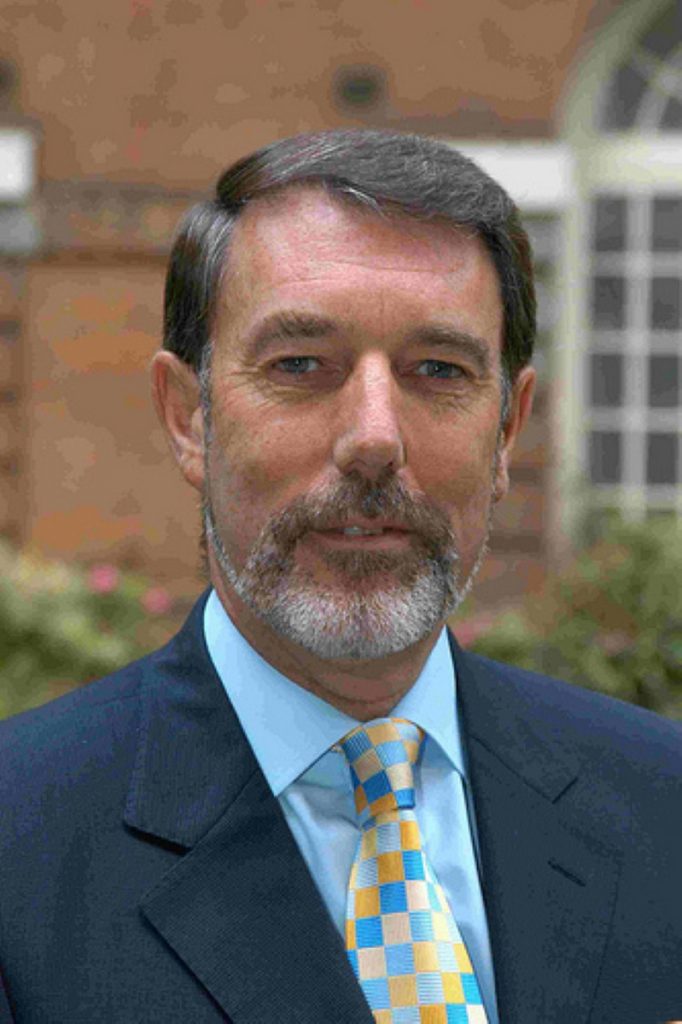Interview: BMA’s Hamish Meldrum
As the fight over NHS reform reaches its climax, the doctors' chief isn't in the mood for compromises.
The campaigning had never been so intense. The British Medical Association, that venerable old institution defending the interests of doctors up and down the land, had never dug in its heels so hard. "What do you call somebody who won't listen to medical advice?" the posters read. "The secretary of state for health."
This wasn't 2011. This was 1989, the last time the spectre of newly untrammelled competition loomed over the NHS. Ever since Kenneth Clarke introduced internal markets doctors have been fed up with the impact competition has had on the health service. What's happening today, according to the doctor sitting opposite, is "almost part of the same argument, the same battle if you like, the same disagreement on how best to organise and make the NHS run more efficiently".


He looks the part: neatly trimmed beard, excellent bedside manner, and a light-coloured shirt, which my memory almost certainly tells me was short-sleeved. This is Hamish Meldrum, the chairman of council at the BMA. We're in his office in the grand BMA headquarters in central London. He is taking a break from one of the biggest confrontations with the government in his career, perhaps the biggest, to assess the situation.
"We want to see very significant changes," he says simply. The BMA's recent special representative meeting decided to call for the bill to be withdrawn, a demand echoed by Dr Meldrum today. He sums up a thought which has been growing in my mind as I plumb the depths of the opposition to this bill: is it worth persevering with concessions, when the basic ideological approach of competition runs all the way through the legislation?
"At the risk of using a very abused phrase," Dr Meldrum says, smiling only slightly, "I agree with Nick that no bill is better than a bad bill." Scrap it, he urges. Start again.
Ministers, who as a rule would prefer not to have to do this, are left scratching their heads over what to do next. They're currently in the middle of a 'pause' in the legislation's passage through parliament. Dr Meldrum doesn't think it's a "sham", as Labour frontbenchers claim. But he's not especially impressed with it.
"I think the listening pause is a political device to give them some thinking time to decide what it is they need to do to get any sort of bill through parliament, to reassure the public they're not dismantling the NHS as they know it, and also what they need to do to try to get the health professionals if not onside, then less antagonistic towards the proposals then they are at the moment," he explains. As he points out, the problem is the BMA were offering them warning signs for the last nine months.
Ministers have seemed increasingly surprised their proposals are so unpopular as those nine months progressed. When health secretary Andrew Lansley launched his white paper last summer, many were surprised simply because none of the main political parties had promised a huge top-down reorganisation of the NHS. But there was no instant uproar. Instead the groundswell of opposition has grown steadily, culminating in the current standoff.
"This is probably one of the biggest battles that we've had in the last 20 years," Dr Meldrum says.
"It's rather ironic that on one hand the secretary of state says his proposals are there to give doctors more say, more involvement, to listen to them and to let them run the service, and yet when we tell them his plans aren't working, he doesn't seem to want to hear what we're saying. We'll have to wait and see how effective our campaigning and our arguments are."
It isn't just the BMA that's taking on the government – virtually every organisation representing healthcare professionals is opposed to the reforms.
"Don't get me wrong," Dr Meldrum adds, "we are not against change in the NHS. We are not medical Luddites, but we think this is change that is taking the NHS in the wrong direction – a direction we've had problems about for the last 20 years."
This is, perhaps, even more of a standoff than the one which took place two decades ago. Britain faces an ageing population, now, and the pressures of a "massive financial crisis".
"There's much more argument that you need integrated collaborative working and you need to avoid fragmentation, unnecessary bureaucracy and the perverse incentives that the current internal market and the proposals in the bill envisage."
Tough medicine for ministers to take, perhaps. The coming days will reveal their response to Dr Meldrum's – and the BMA's – uncompromising stance.












